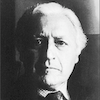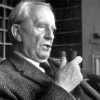- 16 Feb 2013 02:19
#14174236
Well, think about it, you hold fundamental positions that are seen as grotesquely liberal by any standards. For instance it is you who openly wrote on this very forum that you want to see a world where ethnic groups no longer exist.
Just a couple decades ago, such a thing would have been seen as a horrendous thing to say, just as recently as in our parents' generation that idea would have been unthinkable.

Rainbow Crow wrote::roll:
Well, think about it, you hold fundamental positions that are seen as grotesquely liberal by any standards. For instance it is you who openly wrote on this very forum that you want to see a world where ethnic groups no longer exist.
Just a couple decades ago, such a thing would have been seen as a horrendous thing to say, just as recently as in our parents' generation that idea would have been unthinkable.














 Great Question.
Great Question. 





 - By wat0n
- By wat0n